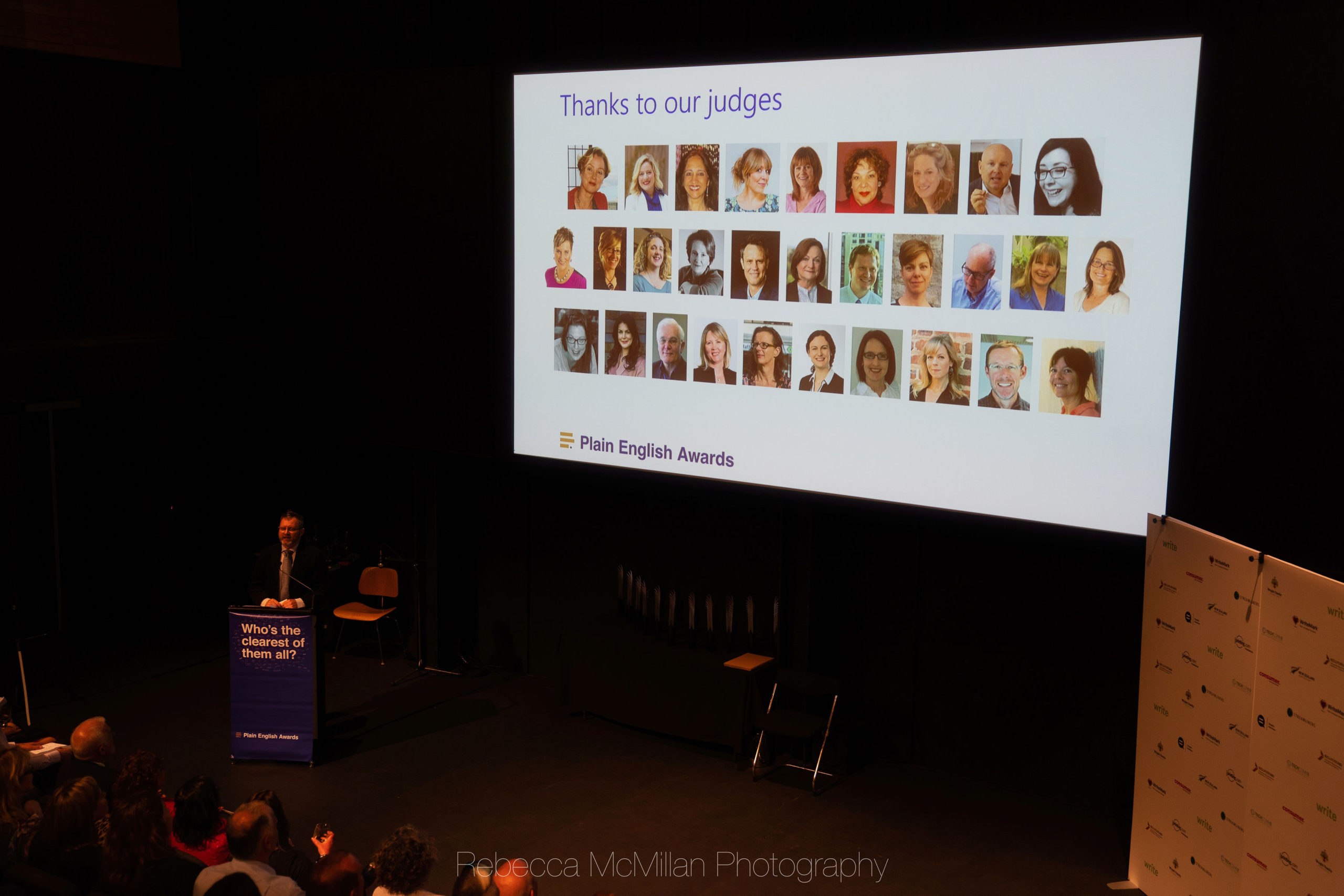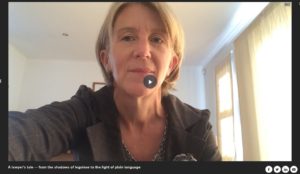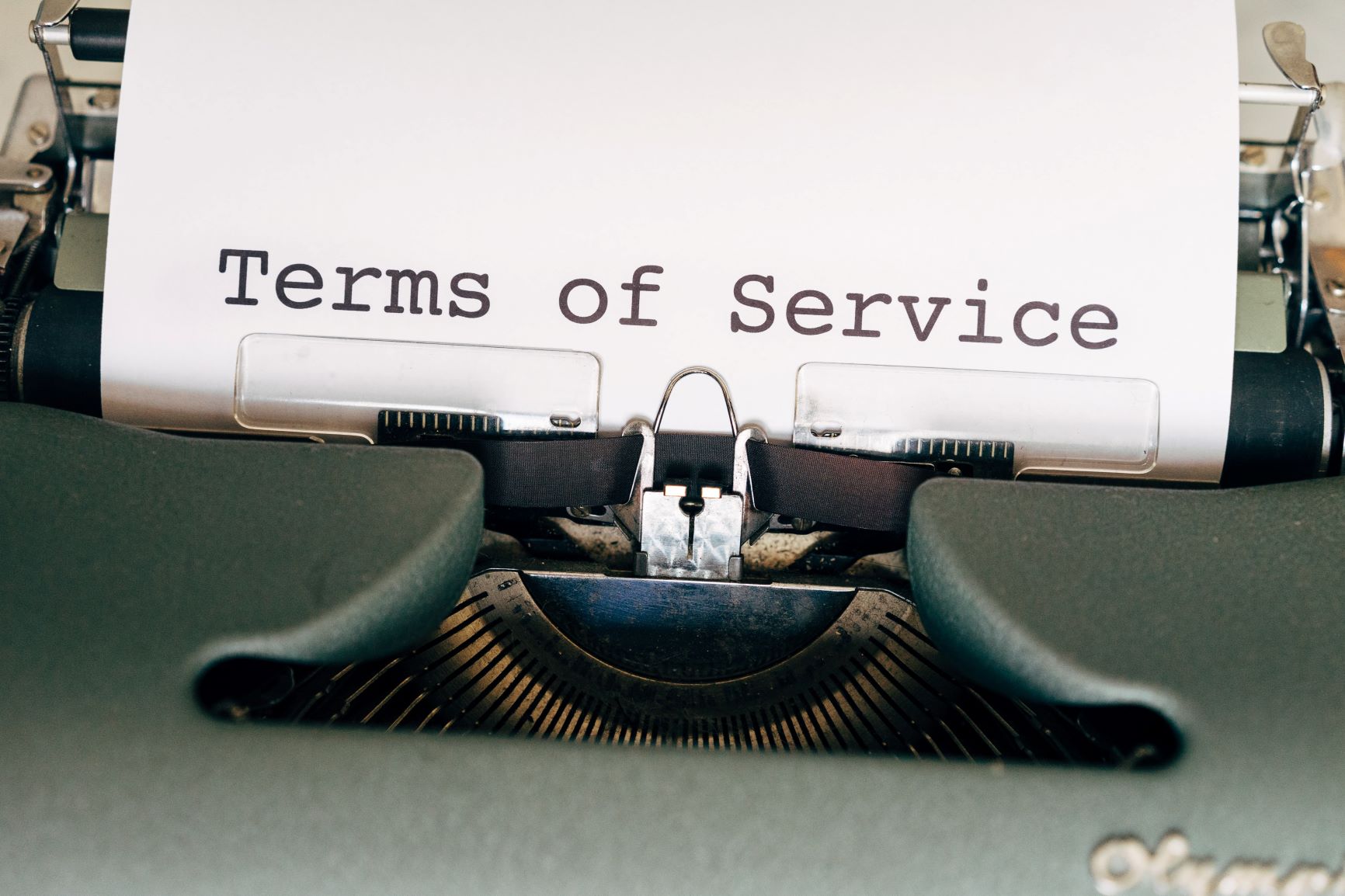
Keep sharing your love of plain language with the world | Photo by Cristian Dina on Pexels
Now that entries for the 2021 Plain English Awards are closed, our judges are hard at work reviewing all the wonderful entries we received. But that doesn’t mean everything stops until we announce the finalists and then the winners. You can still spread the good word and share your love story for plain language.
Keep the conversation buzzing through our gallery
You can browse our video gallery to hear everyone’s stories about their love for plain language, the journey they went on for their entry, or about a project they’re working on.
Look through our video gallery and hear what others have to say
We’d love to hear your plain language love story — we’re keen to hear from all our local and international plain language companions!
Tell your plain language story in a video
Why not create your own video to share in our gallery? Sometimes the hardest part about making a video is where to begin. Believe me, it’s simpler than you think!
You don’t have to be Peter Jackson and direct the next fantasy epic (although that would be amazing). And we’re not looking for Down Under’s Next Top Video Maker.
You could talk to your phone and record a short video. Or you could create a slideshow or animation with either text or voice-over to tell your story. Or you might interview a colleague. We’ve got all sort of styles and formats in the gallery.
Here are some ideas for topics you might cover in your video.
- What does plain language mean to you?
- Why does plain language matter in your industry?
- How did your customers react when you used plain language in a document?
Check out our guidelines for creating your plain language story
Meet other plain language fans
You’re not alone in your love for plain language! Remember that you have friends all over the world who are passionate about plain language.
Our video gallery features stories from people all over the globe who appreciate all things plain and simple — and you can feature alongside them! So have fun and continue to spread the word about your plain language love story.
Find out who sponsors the Awards and loves plain language as much as you
Subscribe to our newsletter to keep up to date on Awards news
Jonathan Tan August 12th, 2021
Posted In: 2021 Plain English Awards, Communications, Story theme
Tags: clarity, clear communication, improved writing, plain language culture, Plain language story, Story, transformation, video story

The next step in the Awards process is for our judges to do their jobs as they work towards deciding on this year’s finalists and winners | Photo by Bruno Nascimento on Unsplash
Entries for the 2021 Plain English Awards have now closed. But that doesn’t mean things have come to a standstill! Quite the opposite, in fact.
Our judges now get to work
We use an online platform called Submittable to accept entries. Submittable is also the place where our judges review each of these entries. Judging is broken down into several different phases as the judges work their way towards agreeing on a shortlist, finalists, and eventually a category winner.
Read about our fabulous judges
Read about the judging process
When you’ll next hear about entries
Good judging takes time. And given that our panels are made up of experts around the world as well as around New Zealand, our judges have the added ‘hurdle’ of communicating across different time zones.
Once our judges do come to agreement, we’ll publicise their shortlist decisions. Judges will then continue their deliberations and we’ll announce this year’s finalists on Thursday, 16 September. And the big announcement — this year’s Plain English Awards winners — will be made on Thursday, 14 October by our media partner, Newsroom.
To add to these broadcasts, our Awards ambassador, Shelly Davies, will talk about our winning entries on nationwide television in the days after the big announcement.
Thanks for your interest in the 2021 Plain English Awards. You’ll be hearing from us again soon. In the meantime, check out the videos in our gallery and share your plain language story!
How you can keep up-to-date
As always, we’ll continue to publish Awards updates in our website blog. You’ll also be able to keep up-to-date through our social media platforms and our newsletter.
Email newsletter@plainlanguageawards.org.nz to subscribe to our newsletter.
Follow us on LinkedIn
Follow us on Facebook
Follow us on Twitter
Melissa Wardell August 4th, 2021
Posted In: 2021 Plain English Awards, Communications, Finalists, Judges, Plain English Awards, Shortlists, Winners
Tags: 2021 finalists, 2021 Plain English Awards, 2021 shortlists, 2021 winners, clear communication, judges

Don’t panic! You’ve got extra time to get your Plain English Awards entries in | Photo by Lukas Blazek on Unsplash
We know what it’s like to be busy, and how difficult it can be to meet deadlines when the pressure’s on. That’s why we’re giving you extra time to submit your Plain Language Awards entries.
Entries for the 2022 Plain Language Awards will now close at 5pm on Tuesday, 2 August.
Get the recognition you deserve for your clear communications
The Plain Language Awards are one of New Zealand’s leading industry awards. Imagine how good you and your team would feel if you became a finalist … or even a winner?!
Find out more about our Awards categories
Get some inspiration from our past winners
Nominate the good and the bad for People’s Choice
Dob in a bad document, or praise an easy-to-read one! The more the public speak up and demand plain English, the easier it is for us all.
Power to the people — vote for plain!
Have you read something that strained your brain? Nominate it!
Get involved with the People’s Choice
It only takes a sentence!
If you’re short on time, enter a few beautifully transformed sentences for the Best Plain Language Sentence Transformation award.
Well-written sentences create a fine reading experience
Enter your transformed sentences by 2 August
Nicola Welby July 29th, 2021
Posted In: 2022 Plain Language Awards, Best Plain Language Sentence Transformation, Communications, Industry awards, People's Choice awards, Social good
Tags: Best Plain English Communication, clear communication, clear writing, Industry awards, People's Choice, Plain English Awards

Breathe new life into your documents and make them worthy of the Turnaround Award | Photo by Bryn Parish on Unsplash
What does it take to win the Best Plain Language Turnaround category? What does a winning entry in this category look like?
More than an edit or redesign
A top submission in the Best Plain Language Turnaround category will be more than an edited version of an original document. It’ll be more than a website that has been redesigned. More than information that has been restructured to be more reader-focused. More than information that has been user-tested for its target audience.
Coming from a place of care
A winning entry in the Best Plain Language Turnaround category will include many of the above qualities and then some. Above all, it will clearly have come from a place of care. An individual or team will have looked at the communication and thought, ‘This information is important and the people it’s serving deserve our time to make the information better serve its purpose’. In other words, the writers will be caring for their readers.
What judges have said about previous winning entries
Have a read of what our judges have said about some of our past turnaround winners.
Winner 2018: Infinite Possibilities Limited
‘This is a damn clever turnaround. I couldn’t stop thinking about it.’
‘A remarkable change! You’ve taken a legal document and turned it on its head. It’s brilliantly unconventional, witty, exudes personality, and was a pleasure to read.’
‘The word choice is casual and direct with a very distinct tone. Some people will clearly consider it unbusiness-like and will not do business with this company. Others will find it refreshing and will move forward — exactly the intent to weed out those clients who find it offensive and to sign on those who find it refreshing.’
Winner 2017: Ministry of Civil Defence & Emergency Management
‘This is a terrific turnaround from a dull, wordy website to one that is lively, engaging, and easy to navigate. This organisation has done a great job of using multimedia, and their restructuring of the content works really well.’
‘The scenario-based navigation on the home page is friendly, colourful, and relevant, and this flows well into the more text-heavy pages further down in the site. The scenarios capture the reader’s attention and the short videos are hilarious — a great way to get people involved in thinking through how to be ready for a disaster or emergency.’
‘The layout and formatting are much cleaner, with good use of white space and headings to focus the eye. The tips are helpful and the key messages are brought to the fore much more than in the original. Great work!’
Winner 2015: OSPRI
‘You’ve done a great job with this rewrite. It’s a vast improvement on the original. This is a usable and useful document, which does the job well. Nice work!
Find out more about the Best Plain Language Turnaround category
Melissa Wardell July 9th, 2021
Posted In: 2021 Plain English Awards, Communications, Plain English Awards, Plain English Turnaround
Tags: 2021 Plain English Awards, Best Plain English Turnaround, Best turnaround, clarity, clear communication, clear writing, plain language, Turnaround Award, writing for the public, writing for the reader

Thanking our judges at an Awards ceremony | Photo by Rebecca McMillan Photography
We asked our judges for some insider advice and tips to pass on to people considering entering the Awards.
And as usual, they were more than happy to help out!
We asked our judges:
- what aspects of an entry makes them think ‘this one is a winner’
- what their top piece of advice was for someone entering the Awards
- what common missteps they see that quickly let them know an entry won’t be a finalist
- what they thought were the most notable features of winning entries from past Awards.
This type of entry is a winner
One judge liked entries that surprised them and surpassed their expectations.
Others said, ‘First impressions are crucial. For me, if the structure is helpful and logical, the language simple and clear, and the tone friendly and engaging, then the authors will definitely be in the running to be winners’.
‘The language will be the equivalent of plain speaking — ordinary, everyday language throughout the text. The document will do the job the writer describes to us.’
‘I think for me that’s when I can feel that the writer has put the effort in to realise that they are writing for a reader. It might not be perfect, but you can tell that they are thinking about the receiver of the message.’
‘It’s how the authors weigh and balance the various aspects and elements of the communication — the audience and its needs, the situation and its urgency or characteristics, the political charge of the situation and people’s reaction, and how all of that has an impact on the message, tone, word choice, sentence construction, images — and when they tell me that they have talked to the intended audience, instead of just assuming they got it right. When all of these things are cohesive, I know I have a winner.’
‘Simplicity and clear evidence of designing the information for the audience.’
Our judges’ top pieces of advice
Our judges want entrants to put themselves in their readers’ shoes. They want you to forget about yourself and your message. Just ‘focus on your readers’, one said, and we agree. Your audience is, after all, what really matters.
Always put yourself in your readers’ shoes. You wouldn’t want to wade through dense, long-winded, jargon-filled reports. Neither do your readers!
Another common theme from our judges was:
Keep it simple!
Here are some other top tips from our judges.
- Don’t get in your own way.
- Leave your ego at the door.
- Brevity is the currency of good comms.
- Think outside of the box, talk to talk to your customers, ask them what they want and need, get to know them. And … surprise yourself!
- Avoid bureaucratic language, particularly impersonal, passive, or pompous sentences.
- Keep it short, sweet, and simple! (No one wants to read lots on a screen.)
- Make a human connection. Show that your piece reaches its audience and has results. Show that every decision was carefully made based on evidence, not assumptions. And even better, try to show documented results — fewer phone calls, more returned surveys, bills paid sooner.
Common missteps judges see in entries
Here’s more on what to avoid, with some examples from the judges of missteps in entries that didn’t make the grade.
Lack of focus on the intended reader
- Too much focus on their own story
- Using their company name over and over again, instead of using ‘us’ and ‘you’
- Text that suggested that the writer wanted the message or the organisation to seem important
Unclear purpose
- A lack of attention to the purpose of the entry. ‘With no ‘care’, probably no need to share…’
- Failing to talk about the goal of your piece in terms of what you want your audience to be able to do with the information
Language-related problems
- Using unfamiliar words in place of everyday words that most people will easily understand
- Too many words, repetition
- Vague language, jargon, or management clichés
Lack of testing or evaluation
- Not being able to show that you tested your piece with your intended audience, no matter how limited the testing
- Not being able to show how you used feedback to improve the document or website
Stronger editing or design needed
- Clumsiness in the writing
- Too much text and not enough white space
- Not being able to explain why you made a choice about design or word choice based on your intended audience.
- Overwriting — including information that just dilutes the purpose of the document — and a lack of tailoring
The most notable feature of past winning entries was putting the reader first
Judges all agreed that putting the reader first was the way to a winning entry. ‘Clarity and consideration of the audience’, said one judge.
Winning documents were thoughtfully and helpfully laid out, using clear and simple language, and in an engaging tone that inspired trust.
‘They all really moved into the heads of their readers’, one judge said. ‘What questions do they have? How can we answer those questions as clearly as possible? How can design help us? What tone of voice is needed?’
‘We have been unanimous in selecting entries that showed unusual skill, such as explaining bowel cancer with sensitivity and clarity. Others have explained complex topics in everyday language.’
‘I’ve only judged the Best Plain English Sentence Transformation before … ‘short and active’ were the two main ingredients!’
‘One of the most memorable entries I judged several years ago was a newsletter updating residents about a major road closure that was going to last several months. The details were highly technical; the inconvenience was very high for anyone who used the road. But the newsletter used similes and metaphors to explain the technical aspects; for example, ‘We need to remove the equivalent of two soccer arenas of rock’. The writer used humour and truth and, as a result, built the trust of those who read it. It could have been a boring weekly update, but instead was an engaging read in terms that even a non-engineer — who didn’t live anywhere near there — could understand. That was understanding the audience and the situation and creating something more.’
‘A conversational tone. And good design (white space, colour, graphics, and so on).’
Some extra wisdom from our judges
Our judges wanted entrants to enjoy the process. ‘The standard has been rising over time’, one said. ‘Even to be chosen as a finalist is impressive and should go in your CV. The ability to write in plain English is in demand around the world.’
Another judge added, ‘It’s a great way to get valuable personal feedback on your writing! And you support plain language for everyone, no matter what someone’s abilities or background are. A great cause.’
‘No matter the outcome for your entry this year, read the comments of the judges with interest. For the most part, they will give you insights on how to approach about your next communication in a richer way.’
‘Plain English is not an add-on to good business writing — it is good business writing.’
Read Trophy Tips: Top tips from past winners
Find out more about this year’s judges
Watch videos by some of our judges in our gallery
Nicola Welby July 5th, 2021
Posted In: 2021 Plain English Awards, Communications, Judges, Plain English Awards, Trophy Tips
Tags: clear communication, clear thinking, clear writing, Finalists, improved writing, insights, plain English, Trophy Tips Seminar, winners

Our judges explain why they love to be involved in the Plain English Awards | Photo by Anastasia Zhenina on Unsplash
When we surveyed our judges for their top tips for a winning Awards entry, we got some lovely feedback about why they love to judge the Awards. We thought you might like to read it too. Perhaps some of the thoughts here will inspire you to celebrate plain language in your own organisations. And you might feel more inclined to demand clear communication from the organisations you encounter in your daily life.
Our judges love celebrating the use of plain English
Our judges felt that that the Plain English Awards are a fantastic way of encouraging and celebrating plain language in organisations.
As an ardent supporter of clear writing, I’m delighted to support them.
I think we should encourage people to excel in this area.
It’s fun, interesting, and it helps me with my mission: plain language as a human right, world wide!
I’ve been leading workshops on writing in five countries for more than 30 years. Judging the competition has always seemed a natural complement.
I love what Write does and stand for and I think any opportunity to promote plain language is a good opportunity.
It’s incredibly important to recognise good writing in and by organisations because they serve as an example to other organisations. In addition, New Zealand’s Plain English Awards have been a model and inspiration for other awards. I learn so much each time I judge.
To help out the plain English community. To keep in touch with the standard of writing across Aotearoa. And I suppose it’s good to have my name connected with the Awards. It’s certainly ‘on brand’!
From the shadows of legalese to the light of plain language
One of our judges, Jacqueline Stephenson (now a legal and business proofreader and plain language editor), shares some reflections on her years as a practising lawyer in the UK and New Zealand. Why did she write the way she did? And what does plain language in legal writing mean to her now?

Watch Jacqueline Stephenson’s video in our gallery
Awards founder Lynda Harris asks us all to demand clear communication
When Lynda Harris spoke at the Awards ceremony in 2018, she encouraged everyone present to demand clear communication, whether as a writer or a consumer.
So, believing what you do about the power of plain language, my question to you as both writer and consumer is ‘what action can you take that is bigger and bolder than before?’ How can you make your sense of care count?
Read Lynda’s inspiring words from that speech in our 2-part blog.
Care — the shortcut to plain language (part 1 of Lynda’s speech)
Care into action — rewrite or reject! (part 2 of Lynda’s speech)
Anne-Marie Chisnall July 5th, 2021
Posted In: 2021 Plain English Awards, Communications, Judges, Plain English Awards
Tags: clear communication, democracy, improved writing, insights, judges, leadership, plain English, Trophy Tips Seminar

Calling all our Australian friends: It’s time to celebrate your successes in clear communication | Photo by Karl Anderson on Unsplash
Plain language is important to us here in New Zealand. It’s also a big thing in Australia. At the moment, Australia doesn’t have any awards celebrating clear communication.
Let’s not beat around the bush! After recognising the gap and fielding several enquiries, we’re opening up entries to Australia.
Haere mai, Australian plain language enthusiasts!
We’re excited to now be welcoming entries from any individual or organisation in Australia, as well as New Zealand. You’d just need to meet the same conditions as entrants do here: See our terms and conditions
You’ll also need to be an organisation that’s registered in Australia, or have a registered Australian address.
The standard entry fee for people in Australia will be AUD$125, and AUD$65 for registered charities.
Australian-based entries are welcome for any Awards categories
From Champion Organisation through to Best Plain English Legal Document, people and businesses in Australia are welcome to enter any of our categories. You can also nominate the good and the bad in our two People’s Choice categories: the Best Plain English Communication and the Worst Brainstrain Communication.
So what are you waiting for? It’s time to get entering!
Entries are open until 31 July
Read about how to enter
Melissa Wardell June 17th, 2021
Posted In: 2021 Plain English Awards, Australian clear communication awards, Communications, People's Choice awards, Plain English Awards
Tags: Best Legal Document, Best Organisation, Best Plain English Communication, Brainstrain, Champion, clear communication, People's Choice Awards, plain English, Plain English Awards

Shine bright like a diamond — enter the champion category of the Awards in 2021 | Image by Dimitris Christou from Pixabay
You’ve read about the Champion category for Best Organisation. But, rather than an organisation, you have an individual (maybe it’s you?) or a team that deserves recognition for its plain language achievements.
The Plain English Champion — Best Individual or Team award honours the people who work hard to make plain language a reality in their organisation. The award is open to individuals or teams who have significantly contributed to a plain language initiative in any New Zealand organisation.
Now is your time to shine, so don’t be shy!
We know that so much work goes into projects that support clear communication. Over the last year or so we’ve seen some amazing examples of this. These communications played a big part in us reinvigorating the Plain English Awards for 2021.
To the people behind New Zealand’s public health communications about COVID-19, we’re looking at you! And we know many other teams and individuals have done similarly inspiring work, whether in the public eye or known only to their colleagues or customers.
Here are some examples to get you thinking. You or your team might have:
- influenced senior leaders to support a plain language initiative
- led a plain language project, large or small
- run workshops or regular team meetings on using plain language
- formally or informally supported other writers to help them produce clear, reader-friendly communication more consistently
- written newsletter articles or intranet resources about plain language for your team or organisation
- rewritten template letters into plain language, saving time for your team
- created clear, easy-to-use policies or guidelines for your organisation.
Meet the winning entry in 2018
Here’s what the judges said about the impressive entry from the MSD Better Letters Project team in 2018.
This initiative is representative of the nitty gritty, down and dirty, battlefield for plain language. They are making appreciable change at scale. And making a difference in the lives of people in vulnerable circumstances. Very well done. The Better Letters Project at MSD is a worthy plain English champion!
Read more about the Better Letters entry
Meet finalist Andy Baldwin of WineWorks
The judges loved Andy’s passion as a champion of plain language in his organisation. Read how he did it.
I enlisted some help and formed a team. I began to study plain English and promote it within the organisation, presenting my ideas to managers and directors. Like any movement it took time to get momentum, but once we achieved ‘critical mass’ people began asking me to teach them how to write better. I think this is the biggest compliment of all. Now we have people throughout WineWorks writing and using great plain English SOPs in their daily work. This is improving our processes and helps to upskill our teams.
Read more about finalist WineWorks
Entries are open until 31 July
Read about how to enter
Read the requirements for the Plain English Champion — Best Individual and Team category
Discover whether you’re a contender for the Plain English Champion — Best Organisation category
Nicola Welby June 14th, 2021
Posted In: 2021 Plain English Awards, Awards brand, Best Individual or Team, Communications, Plain English Awards, Plain English Champion
Tags: 2021 Plain English Awards, Champion, champions, clear communication, plain English, Plain English Awards, plain language

The judges are looking for easy-to-read legal documents | Photo by Markus Winkler on Unsplash
What’s the number one thing a reader of a legal document is looking for? We’d like to suggest that it’s clarity! Readers of any writing — including legal documents — are looking for a document they can read once, understand, and act on.
Read the full version of a definition of plain language by the International Plain Language Federation
The award for Best Plain Language Legal Document celebrates legal writing that gets its point across without that legal flavouring that we’ve seen so often. How often have you encountered words like these in a legal document — furthermore, notwithstanding, prior to, accordingly? And what about commence, expedite, or terminate?
Let’s see some legal documents that push the boundaries of ‘plain’
The winners of the Best Plain English Legal Document in 2018, Draper Cormack, pride themselves on communicating clearly and directly with their clients. And the judges agreed that they were doing a great job of clear communication with their terms and conditions. The judges said:
This document is written in a way that gives the intended audience a strong chance of understanding it at the first reading, and in the way the drafter wants them to. It’s clear, direct writing, using as few words as needed, and avoids being ambiguous, lengthy or technical writing and complex sentences.
Overall, it is a good example of what you can do with a legal document.
The other finalists, Infinite Possibilities and Hatch, also made clarity a key feature of their communication with their customers.
Check out a legal document with a difference in the client relationship agreement from Infinite Possibilities
And take a look at Hatch’s terms too. The judges said:
Overall this document shows what plain English can achieve in the law. The target audience is written to in a language it can understand and act upon with confidence. The flow of ideas is logical and the design is clear and concise. [The document’s audience] would easily and quickly grasp its implications.
What the judges are looking for
The judges are looking for the best example of a legal document written in plain language. You can enter a document used in legal contexts or for legal purposes. Examples include contracts, agreements, terms and conditions, notices, deeds, judgments, legal opinions, and so on. The document may cover a legally enforceable Act, process, obligation, or right.
Here are the judging criteria. And remember the judges will also be keen to know if you’ve evaluated your document in any way, such as carrying out document user-testing.
Purpose
The purpose of the document is clear at the start, and the content supports the purpose of the document.
Structure
The structure is clear and logical to the reader.
Headings and main messages
The headings are informative and clearly signpost the main messages.
Paragraphs
The paragraphs are mostly short and focused on one topic.
Sentences
The sentences are mostly short and straightforward.
Words
The words are precise and familiar. Technical terms are explained.
Layout and presentation
The layout helps the reader absorb the messages quickly and easily.
Watch videos from our judges of the legal category in our gallery:
More about the Best Plain Language Legal Document category
Anne-Marie Chisnall June 9th, 2021
Posted In: 2021 Plain English Awards, Communications, Industry awards, Legal writing, Plain English Awards
Tags: 2021 Plain English Awards, Best Legal Document, clear communication, clear thinking, clear writing, improved writing, Legal writing, legalese, writing for the public

We celebrate the generous support of our friends | Photo by Michael Dziedzic on Unsplash
One of the goals behind the Awards is to create a fairer society through improving people’s access to important communications. We acknowledge that this is an ambitious goal, but it’s one that moves a step closer to reality with every bit of support we get.
Among our supporters are our judges, who are all expert plain language specialists from around the world. They seem to come back each year even keener to to help us out again!
Adding to this wonderful level of support, our sponsors are all shining examples from the community of individuals and organisations committed to doing good.
Taking care of our printing needs
For 7 years now, the Wellington branch of printing.com has been one of our loyal sponsors. We feel fortunate to have their support. As their commitment to the Awards, printing.com covers all our printing needs for the Plain English Awards.
‘We see the Awards as being extremely important for supporting the government and business sectors as they continuously improve the way they communicate with the general public of New Zealand,’ says Nathan Jennings, business development manager at printing.com.
Thank you printing.com for your ongoing support. We couldn’t do it without you and all our other friends!
Read about printing.com and our other sponsors
Become a sponsor
Melissa Wardell May 20th, 2021
Posted In: Communications, Judges, Sponsors, Sponsorship
Tags: 2021 Plain English Awards, Industry awards, judges, Social good, sponsors, Sponsorship












